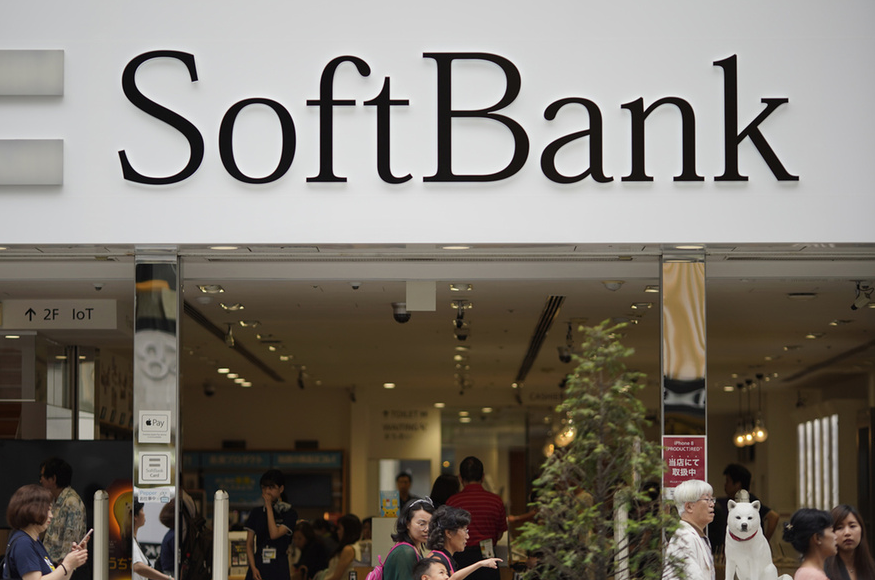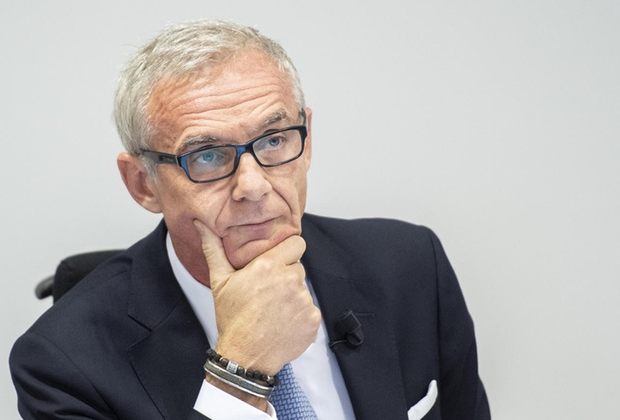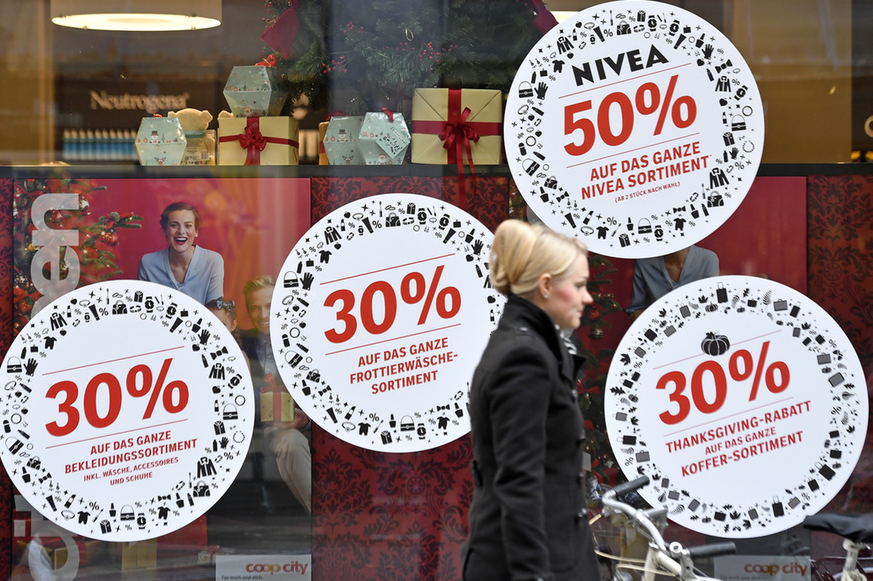SoftBank has quietly poured more than 0m into Credit Suisse investment funds. Copyright 2018 The Associated Press. All Rights Reserved. SoftBank has quietly poured more than 0m into Credit Suisse investment funds that in turn made big bets on the debt of struggling start-ups backed by the Japanese technology conglomerate’s Vision Fund. SoftBank made the investment into the Swiss bank’s .5bn range of supply-chain finance funds, said three people familiar with the matter. Credit Suisse touts these funds to professional investors, such as corporate treasurers, as a safe place to park their cash in the short-term debts of seemingly diversified companies. Marketing documents sent to investors show that these funds have ramped up their exposure to several
Topics:
Swissinfo considers the following as important: 3.) Swiss Info, 3) Swiss Markets and News, Business, Credit Suisse, Featured, Greensill, newsletter, SoftBank
This could be interesting, too:
investrends.ch writes Softbank verkaufte überraschend alle Nvidia-Aktien
investrends.ch writes UBS zahlt für CS-Steuerstreit mit US-Justizministerium weitere halbe Milliarde
Nachrichten Ticker - www.finanzen.ch writes Die Performance der Kryptowährungen in KW 9: Das hat sich bei Bitcoin, Ether & Co. getan
Nachrichten Ticker - www.finanzen.ch writes Wer verbirgt sich hinter der Ethereum-Technologie?

SoftBank has quietly poured more than $500m into Credit Suisse investment funds. Copyright 2018 The Associated Press. All Rights Reserved.
SoftBank has quietly poured more than $500m into Credit Suisse investment funds that in turn made big bets on the debt of struggling start-ups backed by the Japanese technology conglomerate’s Vision Fund.
SoftBank made the investment into the Swiss bank’s $7.5bn range of supply-chain finance funds, said three people familiar with the matter. Credit Suisse touts these funds to professional investors, such as corporate treasurers, as a safe place to park their cash in the short-term debts of seemingly diversified companies.
Marketing documents sent to investors show that these funds have ramped up their exposure to several start-ups in the Japanese group’s $100bn Vision Fund over the past year. This has coincided with a disastrous stretch in which $18bn was wiped off the equity value of these technology bets.
At the centre of the circular flow of funding is Greensill Capital, a Vision Fund-backed company that says it is “making finance fairer”. The London-based firm, which employs former British prime minister David Cameron as an adviser, selects all of the assets that go into the Credit Suisse funds under an agreement dating back to 2017.
The arrangement has allowed SoftBank effectively to provide financial assistance to other Vision Fund companies by paying their suppliers upfront but through a fund commingled with other investors and financing other companies.
This means external investors also bear the risk of these companies failing to pay their debts, which one person familiar with the arrangement said could prove problematic if they are unaware of SoftBank’s substantial interest.
“You thought you were in an arms-length arrangement where all your fellow investors had a pure financial interest,” he said. “Imagine you then found that, in fact, some of your co-investors were funding themselves.”
SoftBank, Credit Suisse and Greensill Capital declined to comment.
Marketing documents for Credit Suisse’s main supply-chain finance fund show that, at the end of March, four of its top-10 largest exposures were to Vision Fund companies, accounting for 15 per cent of its $5.2bn assets. This included companies hit hard in the coronavirus crisis, such as Indian hotel business Oyo and struggling car subscription start-up Fair.
A separate document shows that Santa Monica-based Fair was also the second-largest exposure in Credit Suisse’s “high income” supply-chain finance fund at the end of last year.
In October, the car subscription company’s founder and chief executive resigned shortly after announcing plans to cut 40 per cent of its workforce. Audited accounts for both funds show they had no exposure to Fair at the end of that month, suggesting that they only began financing the company after its difficulties came to the fore.
Clients have withdrawn more than $1.5bn from these supply-chain finance funds this year, after a string of Greensill Capital’s clients defaulted on their debts in high-profile corporate collapses and accounting scandals, such as former FTSE 100 company NMC Health. Credit Suisse has told investors that a group of insurers and Greensill itself are covering losses in the funds.
Australian financier Lex Greensill founded the company in 2011 and cemented his status as a paper billionaire last year when SoftBank’s Vision Fund invested $1.5bn into his eponymous firm.
Greensill Capital specialises in supply-chain finance, where businesses borrow money to pay their suppliers. This week the British Business Bank approved Greensill to provide so-called “invoice finance” through the UK’s Coronavirus Large Business Interruption Loan scheme.
“Making sure capital reaches the real economy, where it is needed most, is integral to Britain’s broader economic recovery,” Mr Greensill said of the decision.
Copyright The Financial Times Limited 2020
Tags: Business,Credit Suisse,Featured,Greensill,newsletter,SoftBank








